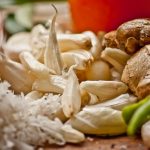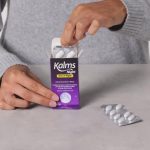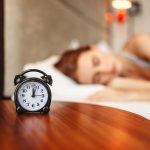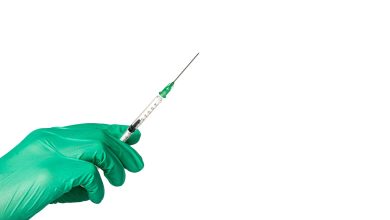Drugs That Promote Relaxation Without Necessarily Producing Sleep
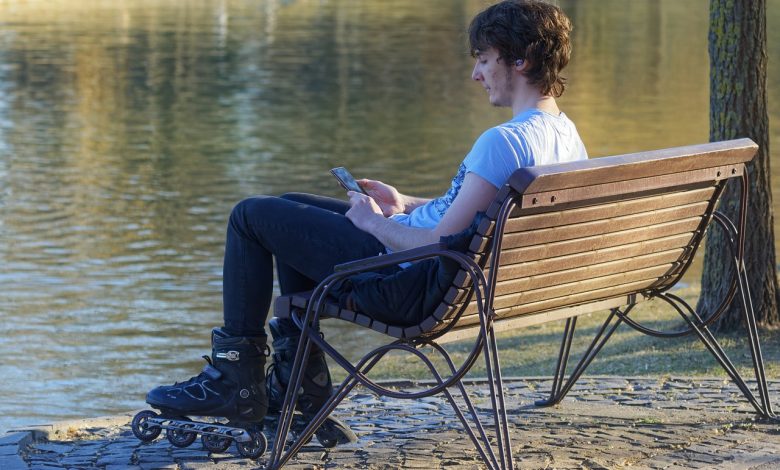
Relaxation and sleep are related but not the same thing. While they both contribute to overall well-being and are essential for a healthy lifestyle, they involve different states of consciousness and serve distinct purposes.
Relaxation refers to a state of reduced physical and mental tension. It involves consciously engaging in activities or techniques that promote calmness, stress relief, and a sense of tranquility. Relaxation techniques can include deep breathing exercises, meditation, mindfulness, taking a bath, listening to soothing music, or engaging in hobbies that help you unwind. The goal of relaxation is to alleviate stress, promote a sense of well-being, and restore a state of equilibrium.
Sleep, on the other hand, is a natural physiological process that involves a periodic state of unconsciousness and reduced sensory activity. It is characterized by altered brainwave patterns and decreased responsiveness to the external environment. Sleep is crucial for the body’s rest and rejuvenation. It plays a vital role in various physiological functions, such as memory consolidation, hormone regulation, tissue repair, and overall physical and mental health. Getting an adequate amount of quality sleep is essential for optimal functioning during waking hours.
Although relaxation can help prepare the body and mind for sleep, they are distinct experiences. Relaxation can be practiced while awake, and it helps create a conducive environment for sleep. Conversely, sleep involves a state of unconsciousness and is characterized by specific stages, including light sleep, deep sleep, and REM (rapid eye movement) sleep.
In this article, we shall be taking a deep look at medications including supplements that promote relaxation without necessarily producing sleep.
Exploring Drugs and Supplements that Promote Relaxation Without Inducing Sleep
In today’s fast-paced world, stress and anxiety have become common companions for many people. Finding effective ways to relax and unwind is crucial for maintaining overall well-being. While sleep is essential for rejuvenation, there are times when we need relaxation without necessarily inducing sleep. Here are some range of drugs and supplements that can promote relaxation, reduce anxiety, and foster a sense of calmness during wakefulness:
L-Theanine
L-Theanine, an amino acid commonly found in green tea, is known to promote relaxation without causing drowsiness. It is often praised for its ability to induce a state of calmness and mental alertness simultaneously.
L-Theanine works by increasing the production of neurotransmitters such as GABA, serotonin, and dopamine in the brain. GABA is an inhibitory neurotransmitter that helps regulate brain activity and promote relaxation. Serotonin and dopamine are involved in mood regulation and can contribute to a sense of well-being.
Research suggests that L-Theanine can help reduce anxiety, improve cognitive performance, and enhance attention and focus. It is often used to counteract the jittery effects of caffeine, as it can help balance out its stimulating properties.
While L-Theanine promotes relaxation, it typically does not induce drowsiness. In fact, some studies have shown that it can improve sleep quality by reducing anxiety and promoting a sense of relaxation before bedtime. However, its primary effects are focused on relaxation during wakefulness.
L-Theanine supplements are available in various forms, including capsules, tablets, and powdered formulations. It is generally considered safe for most individuals when taken within recommended dosages. However, it’s always a good idea to consult with a healthcare professional before starting any new supplement, especially if you have underlying health conditions or are taking other medications.
Magnesium
Magnesium is known to promote relaxation without causing drowsiness. While it can have a calming effect, it typically does not induce significant drowsiness or sedation.
Magnesium plays a role in regulating the activity of the parasympathetic nervous system, which is responsible for the body’s relaxation response. By supporting the function of GABA, a neurotransmitter that inhibits brain activity and promotes relaxation, magnesium helps calm the nervous system and reduce anxiety.
Research suggests that magnesium supplementation may help reduce symptoms of stress, anxiety, and promote relaxation. It has been found to have a positive impact on mood and may help improve sleep quality by relaxing the muscles and reducing muscle tension.
It’s important to note that individual responses to magnesium may vary, and it’s advisable to consult with a healthcare professional to determine the appropriate dosage and form of magnesium for your specific needs. They can consider factors such as your current magnesium levels, health status, and any medications you may be taking to provide personalized recommendations.
Magnesium is available in various forms, including magnesium citrate, magnesium glycinate, magnesium oxide, and magnesium threonate. Each form has different levels of bioavailability and may be better suited for specific purposes. For relaxation purposes, magnesium citrate and glycinate are often recommended due to their superior absorption and lower likelihood of causing digestive discomfort.
Zoloft
Zoloft is an antidepressant medication classified as a selective serotonin reuptake inhibitor (SSRI). While Zoloft is primarily used to treat depression and various anxiety disorders, it can also promote relaxation without causing significant drowsiness in many individuals.
SSRIs like Zoloft work by increasing the levels of serotonin, a neurotransmitter that plays a key role in mood regulation, in the brain. By blocking the reuptake of serotonin, SSRIs help maintain higher levels of serotonin in the synaptic space, which can improve mood and reduce symptoms of anxiety.
Zoloft has a relatively low sedating effect compared to some other medications used to manage anxiety. This means that while it may cause mild drowsiness or fatigue in some individuals, it generally does not cause excessive sleepiness during the day. Instead, it tends to promote a more balanced mood and a sense of calmness, allowing individuals to experience relaxation without impairing their daily functioning.
Buspirone
Buspirone is an anxiolytic medication that is commonly prescribed for the treatment of generalized anxiety disorder (GAD). One of the advantages of buspirone is that it generally does not cause significant sedation or drowsiness, allowing individuals to experience relaxation without feeling excessively sleepy.
Buspirone works differently from other anxiolytic medications. It acts as a partial agonist for serotonin receptors and also has some affinity for dopamine receptors. By modulating these neurotransmitters, buspirone helps reduce anxiety symptoms.
Unlike sedative medications such as benzodiazepines, buspirone does not have a direct sedating effect on the central nervous system. This means that it can be taken without causing drowsiness or impairing cognitive function during the day. Instead, it tends to promote a sense of relaxation and calmness without interfering with normal daily activities.
Herbal Supplements
There are several herbal supplements that are known to promote relaxation without causing sleep. These herbs have calming properties and can help reduce anxiety and stress levels. While individual responses may vary, here are some herbal supplements that are commonly associated with relaxation without inducing sleepiness:
1. Ashwagandha: Ashwagandha is an adaptogenic herb that has been used for centuries in Ayurvedic medicine to promote relaxation and reduce stress. It helps the body adapt to various stressors by regulating cortisol, a stress hormone. Ashwagandha is believed to have anxiolytic properties, helping to reduce anxiety and promote a calm state of mind. It is known for its ability to support overall well-being without inducing drowsiness.
2. Lemon Balm: Lemon balm, also known as Melissa officinalis, is a lemon-scented herb that belongs to the mint family. It has a long history of use for its calming effects on the nervous system. Lemon balm is believed to have anxiolytic properties and can help reduce anxiety and promote relaxation. It contains compounds that interact with GABA receptors in the brain, similar to benzodiazepines, promoting a sense of calmness without causing drowsiness.
3. Rhodiola Rosea: Rhodiola rosea is an adaptogenic herb that has been used in traditional medicine for centuries. It is known for its ability to support the body’s stress response and promote relaxation without inducing drowsiness. Rhodiola rosea helps regulate stress hormones like cortisol and supports neurotransmitter balance, which can help reduce anxiety and fatigue. It is often used to improve mood, enhance cognitive function, and increase overall resilience to stress.
4. Holy Basil: Holy basil, or tulsi, is a sacred herb in Ayurvedic medicine known for its adaptogenic properties. It has been traditionally used to promote relaxation, reduce anxiety, and support overall well-being. Holy basil helps the body adapt to stress and modulates cortisol levels. It contains compounds that interact with various neurotransmitters and receptors in the brain, promoting a sense of calmness without causing drowsiness.
5. Passionflower: Passionflower is a botanical with sedative and anxiolytic properties. It has a long history of use for promoting relaxation and reducing anxiety. Passionflower helps increase the levels of GABA in the brain, resulting in a calming effect without excessive drowsiness. It is often used to alleviate symptoms of anxiety, restlessness, and insomnia.
6. Chamomile: Chamomile is a popular herb known for its soothing and relaxing properties. It has been used for centuries as a natural remedy for promoting relaxation and reducing anxiety. Chamomile contains compounds that interact with GABA receptors, promoting a calming effect without causing drowsiness. It is often consumed as a tea before bedtime to help with relaxation and sleep, but it can also be enjoyed during the day for its calming benefits without inducing sleepiness.
7. Lavender: Lavender is a fragrant herb widely recognized for its calming and soothing properties. It is often used in aromatherapy to promote relaxation and reduce anxiety. Inhaling the scent of lavender essential oil or using lavender-based products can help induce a state of calmness without causing drowsiness. Lavender can also be consumed as a tea or taken as a supplement to support relaxation.
8. Skullcap: Skullcap is a herb that has been traditionally used for its calming effects on the nervous system. It is often used to reduce anxiety, restlessness, and promote relaxation. Skullcap contains compounds that can interact with neurotransmitters, helping to balance mood and induce a state of calmness without inducing sleepiness. It is available as a tea, tincture, or capsule.
9. California Poppy: California poppy is a herb native to North America and has been used traditionally as a natural remedy for promoting relaxation and reducing anxiety. It contains alkaloids that have sedative properties but typically do not cause excessive drowsiness. California poppy can be taken in various forms, including as a tea, tincture, or capsule.
10. Lemon Verbena: Lemon verbena is an herb known for its uplifting and calming effects. It is often used to reduce stress and anxiety, promoting a sense of relaxation without drowsiness. Lemon verbena tea is popular for its pleasant flavor and calming properties. It can be consumed throughout the day to support relaxation.
11. Gotu Kola: Gotu kola is an herb commonly used in Ayurvedic and traditional Chinese medicine to promote relaxation and reduce anxiety. It is known for its adaptogenic properties, helping the body cope with stress. Gotu kola is believed to enhance cognitive function, support a calm state of mind, and improve overall well-being without causing drowsiness.
12. Valerian Root: Valerian root is renowned for its calming and sleep-inducing effects. However, it can also promote relaxation during wakefulness. Available in various forms such as capsules, teas, or extracts, valerian root is believed to enhance the release of GABA, thus reducing anxiety and inducing a state of tranquility.
13. Kava: Kava is a herb native to the South Pacific islands and has been used for centuries in traditional ceremonies and for its relaxing properties. Kava is known for its ability to promote relaxation and reduce anxiety without causing significant drowsiness. It is often consumed in the form of a beverage made from the root of the kava plant.
Kava contains active compounds called kavalactones, which have anxiolytic and muscle-relaxant effects. These compounds interact with the brain’s receptors, including GABA receptors, to promote relaxation and reduce feelings of stress and anxiety. Kava is believed to increase the levels of GABA in the brain, leading to a calming effect.
When consumed in moderate amounts, kava can induce a state of relaxation, promote a sense of well-being, and relieve muscle tension. It is often used as a natural alternative to prescription medications for anxiety and stress. Many people find that kava helps them unwind and feel more at ease without causing excessive drowsiness.

